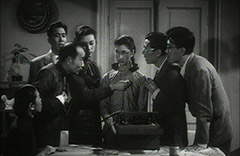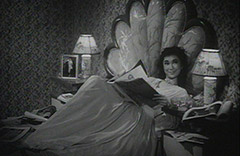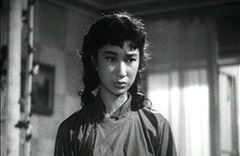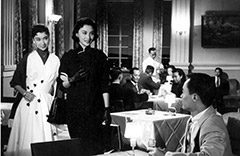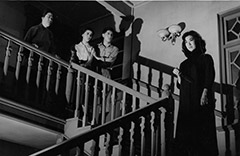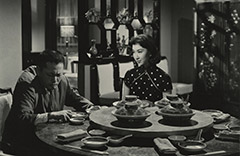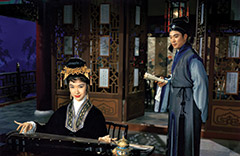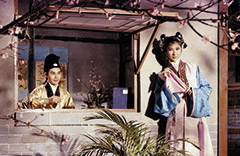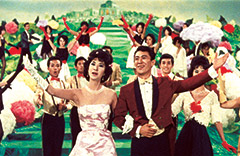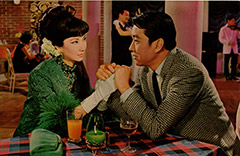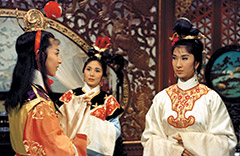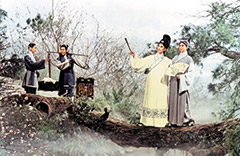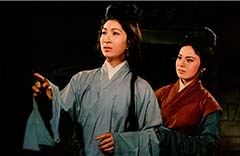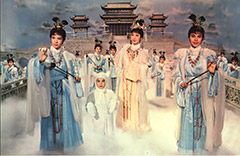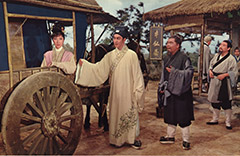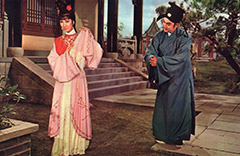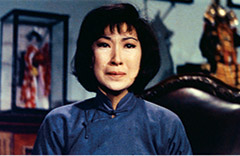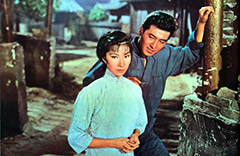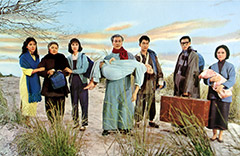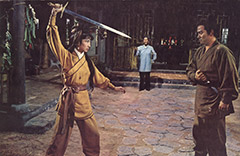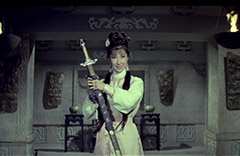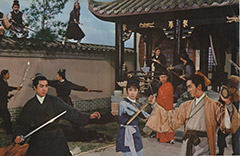Film Screenings
The Many Faces of a Budding Star
An Otherworldly Beauty
Huangmei Operatic Classics
Originally a form of rural folksong and dance that was popular around the Anhui province, huangmei diao (literally, Yellow-Plum Tone) later evolved to absorb elements of Peking opera and grew in influence and popularity. When Fairy Couple, a mainland Chinese huangmei operatic film hit the screens in Hong Kong in the mid-1950s and received popular acclaim, huangmei diao took hold and became a distinct genre in its own right. The six titles in this section all feature Betty Loh Li in huangmei operatic roles. Already an established star by then, Loh pulled off a stellar performance as Lin Daiyu in Dream of the Red Chamber – so much so that she was dubbed ‘Daiyu Reincarnated'. The popularity of huangmei operatic films was a testament to the enduring appeal of Loh, one of its biggest and brightest stars.
A Wartime Phoenix
After the July 7th Incident broke out in 1937, Betty Loh Ti's father died during the Japanese bombings on 18 July, 6 days before his baby girl was born. War not only robbed Loh of her father but also her childhood. Vehement repugnance to wars and painful memories of her war-ravaged childhood lent a startling depth and poignancy to her performances in war films. Three war resistance films starring Loh are especially selected for screening in September to commemorate the Victory of the War of Resistance against Japanese Aggression. Adding to her usual tenderness, Loh imbued her characters with uncompromising courage and defiance in the face of adversity that were reminiscent of her wartime experiences – a most powerful cinematic reminder of the bittersweet celebrations of victory and, ultimately, the absurdity of war.
The High-Minded Heroine
One-armed Swordsman (1967) ushered in the wuxia craze in the mid-1960s. Fist-and-kick, swordplay flicks were all the rage, so popular and in demand that even Betty Loh Ti had to ditch her signature elegant melodramatic persona for an all-action one – she even took up horse-riding training in preparation for her role in Travel with a Sword. The willowy beauty, who was admittedly not blessed with martial genes nor the physique for it, announced quitting the genre for good after she completed The Wandering Swordsman and Duel at the Supreme Gate. These three films became her first and last wuxia spectacles that graced the silver screen, a precious gift bequeathed to audiences then and now.


